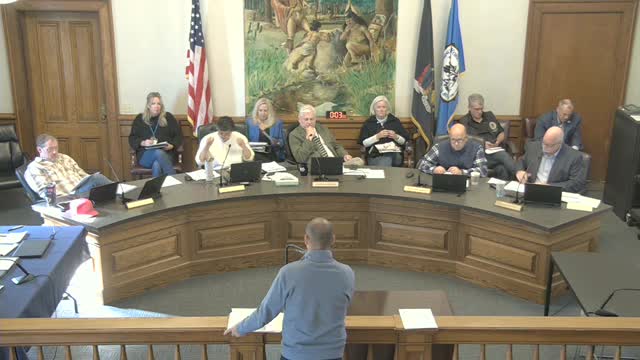Recreation department requests $24,499 for programs, seeks Camp Saradac expansion amid wage and staffing pressures
Get AI-powered insights, summaries, and transcripts
Subscribe
Summary
Recreation staff presented a package of budget changes including a $24,499 net request to maintain programming, expand Camp Saradac to 220–230 campers, and cover minimum-wage and union-contract impacts. Staff also described reliance on DPW overtime and changes to earlier recreation-managed parking revenue.
John, a Recreation Department staff member, told the Saratoga Springs City Council at an Oct. budget workshop that Recreation is requesting $24,499 in the comprehensive budget package to preserve and expand programming and to offset wage and contract increases.
John said the department’s original requested budget sought approximately $113,000 in additional revenue (about a 7% increase) and about $285,966 in additional expenses (about a 9.7% increase). The comprehensive budget presented to council increased the requested revenue slightly to $119,623 and reduced overall requested expenses by roughly $4,589 compared with the initial request. John said most of the Recreation/DPW-recreation adjustments came on the DPW-rec side, which showed about a $96,000 decrease in the comp package.
The department is proposing to expand Camp Saradac from about 180 participants to roughly 220–230 participants and to change the camp model so about half of campers go on off-site field trips while the others remain on-site for programming. John described the logistics: “the goal is to be able to take 50% of those kids off to their field trip while 50% stay back, and we can, monitor them.” He said increased buses and staff to meet state-required camper-to-staff ratios will raise costs but are expected to be largely offset by increased registration revenue.
John described several specific lines in the comp request that total the $24,499 figure: - Parking-program staffing: Recreation historically ran a seasonal parking program (Jackson and Wright Street and Putnam Street garage) that generated about $27,000 when Recreation staffed the operation. That program largely stopped after paid parking began; to resume staffing would require additional payroll (John requested $11,813 after earlier larger requests were scaled back). - Dues and advertising: modest restorations for professional memberships and seasonal advertising ($710 for dues; about $700 for winter advertising). - Phones: two cell phones for off-site coordinators (about $650 annually). - Education and training: John requested about $3,990 for staff training and conference attendance and said training supports coordination with DPW for rink operations and other cross-department work; the annual conference cost cited was $525 per attendee. - Sports and program lines: Volleyball, intro-to-ice and sports-camp field-trip expense lines were restored in part; John said the intro-to-ice effort “brings in a little over $60,000 a year,” with about $22,000 in staffing costs and roughly $1,500 in annual supplies.
John warned Recreation relies heavily on DPW overtime for facility staffing and turnover. He described an upcoming tournament that can only be accommodated if a DPW employee works a short overtime shift to open or clean facilities outside normal staffing hours. “Overtime is a savior for the rec department,” he said.
John also said concessions at fields and at the ice rink are run by private organizations and do not generate direct city revenue; the city provides trash bags and occasional repairs but does not receive concession proceeds.
Council members asked for more granular splits for training and ice-rink-specific education costs so the council can compare Recreation requests with other departmental conference/training requests.
No Recreation-specific budget items were adopted at the workshop; staff and council agreed to continue refining line items and to pursue fee adjustments where feasible (John estimated a 3% fee increase across programs could yield roughly $46,000 and a 5% increase roughly $75,000 if participation and program structure remain constant).
